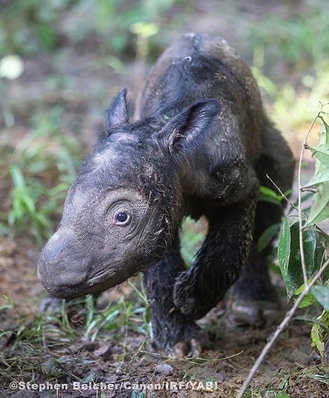Javan and Sumatran Rhinos are on the precipice of extinction
Globally there is intense effort to prevent critically endangered species from becoming extinct in the world. One of the most prominent biological families under threat of extinction is the Rhinoceros, and the most endangered Rhinos live in Indonesia, but thus far conservation funding and government focus have failed to ensure that these species survive.
Check out SIES's blog for a detailed analysis and conservation strategies.
Check out SIES's blog for a detailed analysis and conservation strategies.
Urgent Rhino Habitat expansion and improved Protection strategies
- Researchers believe that there are only 50 - 70 Javan Rhino and 40 - 60 Sumatran Rhino (Dicerorhinus sumatrensis) alive today. This could be an over estimate.
- Anti poaching rhino patrol units have prevented poaching but rhinos desperately need suitable habitat and food sources.
- Rainforest habitat in the national parks are severely degraded by logging last century and ongoing anthropogenic fire. In Way Kambas National Park (WKNP), a quick survey of elephant, tiger and rhino distribution, conducted in 2008 in a collaboration between Way Kambas NP, Rhino Protection Unit, Tiger Conservation Program and the Wildlife Conservation Society, showed that rhino population had retreated to areas in the centre of the park with dense rainforest habitat and canopy, and were not seen in degraded areas.
- If the rhino population is to expand then the parks requires extensive habitat regeneration with projects incorporating long-term protection. The WKNP regeneration project, commenced 2011, consists of broad scale, long term projects aiming to regenerate and protect areas which were previously inhabited by rhinos, but for many years have been degraded by fire. The project uses fast growing fire resistant species to accelerate canopy development and diminish susceptibility to devastation by fire, and plants rhino food trees, to create suitable habitat for rhinos.
- OUR goal is to plant 1 million food trees by 2027
